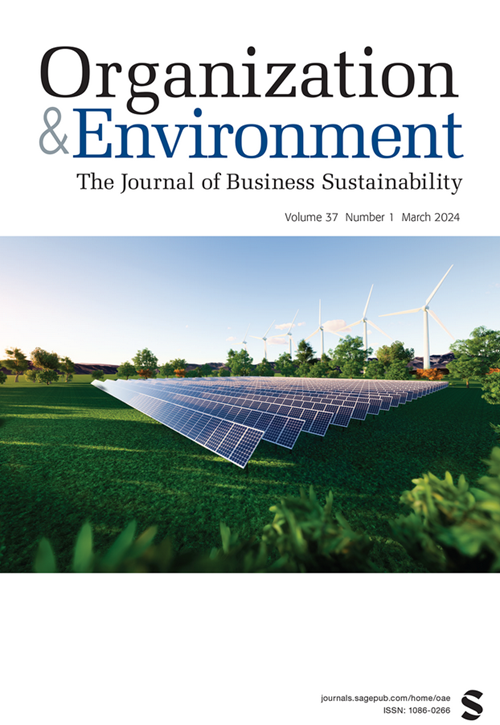制度压力与企业绿色创新:来自中国上市企业的证据
IF 7.3
4区 管理学
Q1 ENVIRONMENTAL STUDIES
引用次数: 2
摘要
虽然企业对环境议程上的制度压力的反应似乎是可以预见的,但对影响绿色创新吸收的机制的理解有限。本文将在中国绿色信贷政策的背景下考察上述问题。通过将制度理论与资源依赖理论(理解组织-环境关系的首要框架)相结合,我们认为内部资源依赖的变化是制度压力触发企业绿色创新的渠道。本研究以2007 - 2019年1485家中国上市公司为研究对象,其中绿色信贷政策实施时间为2012年。我们发现,政策导致的资金约束刺激了企业的绿色创新。此外,绿色信贷政策与金融约束之间的关系对于银行依赖程度较高的企业更为显著。本文章由计算机程序翻译,如有差异,请以英文原文为准。
Institutional Pressures and Corporate Green Innovation: Evidence From Chinese Public Enterprises
Although the corporate response to institutional pressures on the environmental agenda seems to be foreseeable, there is a limited understanding of the mechanisms that influence the uptake of green innovation. In this article, we examine the above question in the context of China’s green credit policy. By integrating institutional theory with resource dependence theory, a premier framework for understanding organization–environment relations, we theorize that the change in internal resource dependence is a conduit by which institutional pressures trigger corporate green innovation. This study empirically focuses on 1,485 listed Chinese firms from 2007 to 2019, during which the green credit policy was implemented in 2012. We find that the policy leads to financial constraints that stimulate corporate green innovation. Furthermore, the relationship between green credit policy and financial constraints is more significant for firms with a higher level of financial dependence on banks.
求助全文
通过发布文献求助,成功后即可免费获取论文全文。
去求助
来源期刊

Organization & Environment
Multiple-
CiteScore
11.20
自引率
5.70%
发文量
19
期刊介绍:
Organization & Environment encourages informed discussion about the social roots and consequences of environmental problems and stimulates deeper reflection on the meaning and significance of the natural world. By critically examining the impact of human production and consumption systems on the natural environment, Organization & Environment develops new perspectives on organizations that encourage environmentally sensitive reflection, inquiry, and practice.
 求助内容:
求助内容: 应助结果提醒方式:
应助结果提醒方式:


